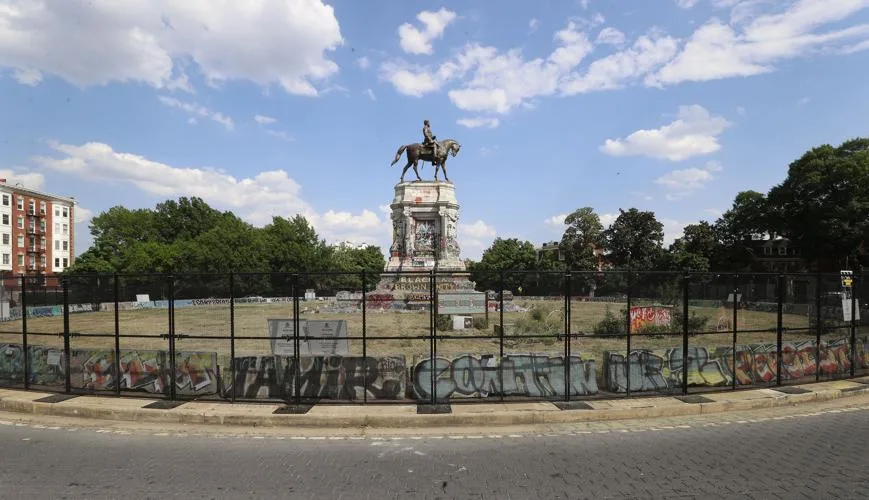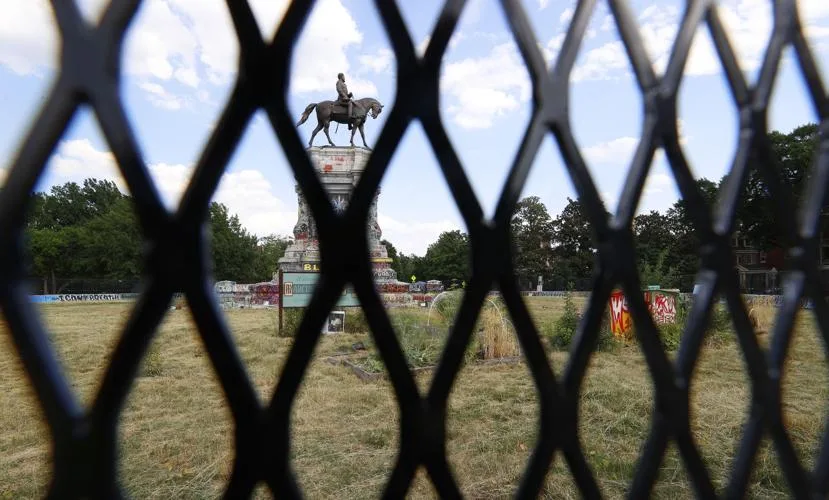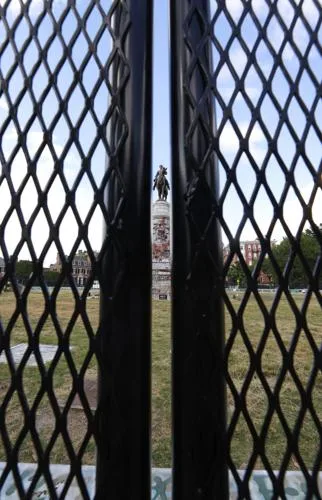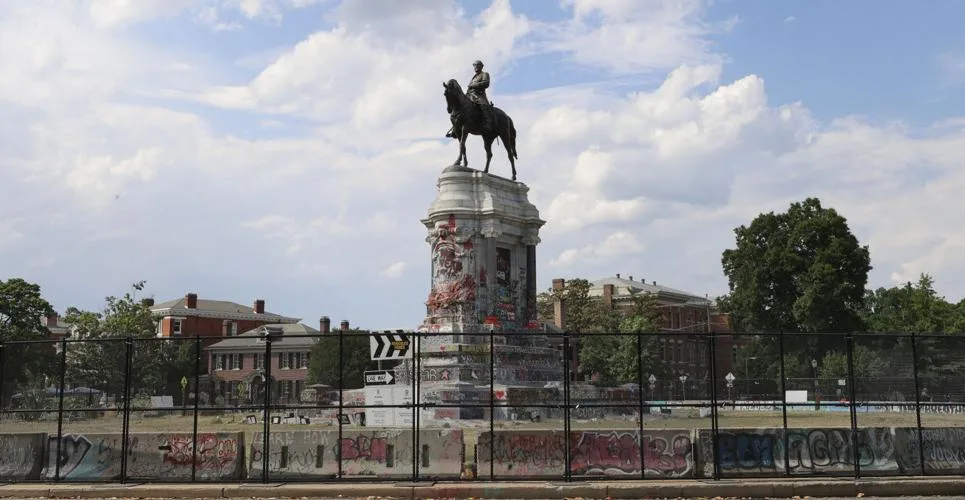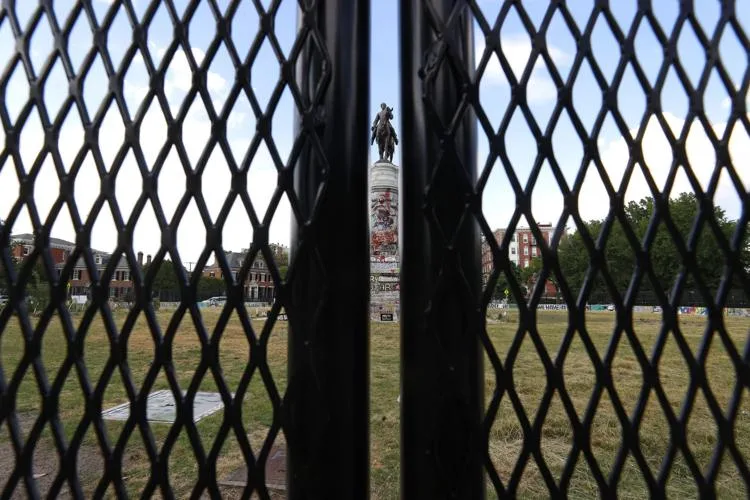Some issues are bolstered by evidence so indisputable that they should be beyond debate. But systemic racism in America is not one of them, according to a candidate for the Albemarle County School Board.
“When we talk about systemic racism, I think that there needs to be an openness about, you know, not everybody agrees that there is systemic racism. And it has to be OK for people to disagree about that,” Meg Bryce, the daughter of the late Supreme Court Justice Antonin Scalia, said during an Oct. 9 virtual forum hosted by the Albemarle-Charlottesville NAACP, as reported by The Daily Progress newspaper of Charlottesville.
“It has to be OK for some people to be able to say, ‘Well, I do recognize that racism exists and there are racist people in the system. I don’t agree that there is systemic racism,’” she continued. “And I don’t think somebody should be shamed into silence for expressing that.”
People are also reading…

Albemarle County School Board candidate Meg Bryce, the daughter of the late Supreme Court Justice Antonin Scalia, speaks during a virtual forum hosted by the Albemarle-Charlottesville NAACP on Oct. 9.
Well, people can believe just about anything: that the world is flat, that climate change is a fiction, that Elvis and Tupac walk among us and will record together soon. That COVID-19 vaccines contain a tracker microchip. Or that the presidential election was stolen from Donald Trump.
That doesn’t make any of that OK.
On systemic racism, the consequences are too dire for us to indulge fiction. Such denials are the political jet fuel being leveraged for all sorts of un-American practices, including censorship and the potential demolition of democracy. Governments and school districts are banning books by Black and Latino authors. They’re stifling classroom discussions of America’s history of oppression.
In a nation built on chattel slavery, this truth should be self-evident: The denial of systemic racism is itself an act of racism.
Sadly, this denial, not unlike election denial, has become an article of faith for the American political right. Its tactic is to gaslight us — not unlike how it clouded scientific consensus around climate change by seeding public opinion with doubt.
Then again, “alternative facts” and bigotry have become standard operating procedure on America’s political right.
Trump set the tone in 2016 when he campaigned on banning Muslims and Latino immigrants from entry into our nation. In 2020, he dismissed the idea of systemic racism, even as throngs of people nationwide marched in protest of it.
As president, Trump issued an executive order banning federal entities and contractors from providing employees with training on “divisive concepts” and “harmful ideologies” related to race and gender. Sound familiar? Virginia Gov. Glenn Youngkin’s first order of business was an executive order banning “inherently divisive concepts” in the classroom.
These policies, and the prioritization of white student feelings over the honest teaching of history, are the epitome of systemic racism. So are attacks on diversity, equity and inclusion and other efforts designed to address past and ongoing discrimination.
Bryce’s statements are especially tone-deaf for Charlottesville, site of a violent 2017 march by Nazis, Ku Klux Klan members and other white supremacists protesting the city’s plan to remove Confederate statues. And she defended racism denial a week after a Charlottesville City Council meeting was hijacked by comments on Zoom by white supremacists and antisemites celebrating Hitler, making racial slurs, and calling for race war and genocide, according to The Daily Progress.
After her opponent, Allison Spillman, called her out, Bryce elaborated in an email to The Daily Progress on what she considers to be the difference between racism and systemic racism: “The former can be described as personal expressions/manifestations of bigotry and prejudice, whereas the latter is prejudice that is inherent to an institution, and embedded within the institution’s procedures, processes, etc.”
The preference to frame racism as interpersonal, rather than institutional and systemic, is a dodge. There’s abundant evidence of the role that governments and institutions have played in sustaining white supremacy, from 1619 until today, affecting every aspect of people’s lives, including where they live.
The wealth-building benefits of the GI Bill after World War II largely eluded Black veterans. The federal government’s history of color-coded, racially discriminatory lending practices, called redlining, is well-documented. So is America’s history of plowing interstate highways through African American neighborhoods nationwide, including Richmond’s Jackson Ward.
In Charlottesville, Vinegar Hill, a predominantly Black neighborhood, was razed in the mid-1960s. Exclusionary zoning practices in cities such as Charlottesville, with their roots in racial discrimination, have rendered housing unaffordable to many.
African American health problems can be traced to the nation’s long and often-unaddressed history of systemic racism. Yet despite substantial evidence that racism is a public health crisis that attacks the Black body — and the reality that Black women have a maternity mortality rate nearly three times that of white women — Youngkin appointed a health commissioner who was dismissive of the role of structural racism in health outcomes.
Black students receive disproportionately harsher discipline than their white peers, part of the school-to-prison pipeline. Every aspect of the criminal justice system — from policing to prosecution to incarceration — is hardwired to disproportionately punish Black and brown people.
America’s immigration policies were racially discriminatory. Asian Americans and Indigenous people were long denied the ballot. Black people did not realize full citizenship rights until the mid-1960s — nearly two centuries after the nation’s founding. Even today, the state of Alabama has defied a Supreme Court order that it comply with the Voting Rights Act by drawing a second majority-Black congressional district in the state.
I could go on and on about the dangers of this strain on our body politic. Election deniers and systemic racism deniers are fellow travelers. If Black people sound like Cassandras at this moment, it’s because we’ve experienced firsthand what the absence of true democracy looks and feels like. We are this nation’s canary in the coal mine.
To suggest that a system that has oppressed us for 400 years does not exist is beyond insulting; it makes anyone asserting it sound irredeemably racist or stupid.
If Bryce is willing to leave this up for debate, she has no place on a school board.
PHOTOS: Lee Circle, one year after protests began
May 29 marks one year since demonstrators, enraged by a police officer’s public murder of a Black man more than 1,100 miles away, first marched for a movement that would forever change the physical and political landscape of Richmond. Today, Robert E. Lee is the only Confederate remaining on Richmond’s Monument Avenue. The state has fenced off the circle as it awaits court approval to remove the statue.
Michael Paul Williams (804) 649-6815


